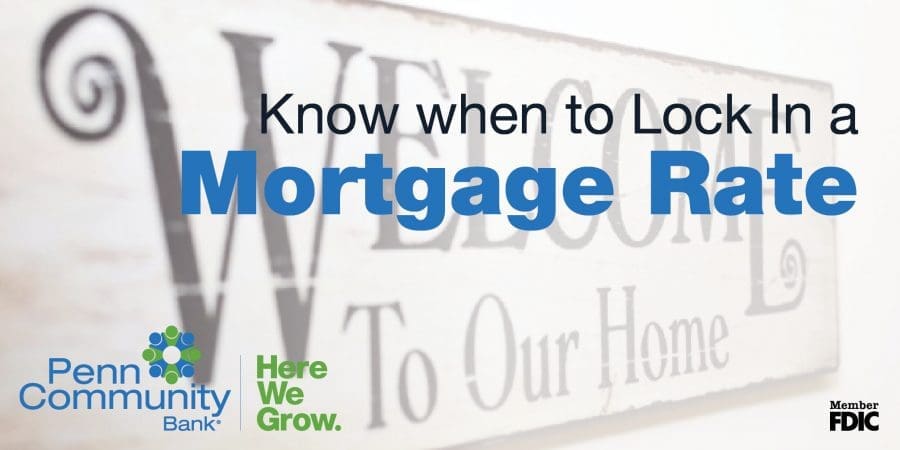
When you are preparing to get a mortgage, one of the steps you can take is to lock in your interest rate. This is when you sign a formal agreement with your lender that solidifies what interest rate they will use for your mortgage, and how many days you have to get your mortgage closed at that rate. Once locked, you will be able to obtain your mortgage at that rate, even if market interest rates change before your loan closing date.
Locking in your rate is often a wise choice, but you have to make the tricky decision of exactly when to lock that rate. A rate lock is typically good for at least 30 days, but it can last for 45 days, 60 days, or longer. However, longer rate locks are sometimes for slightly higher interest rates or come with an upfront cost. Most borrowers wait until they have signed a contract on a home to lock their rate, because you never know how long it will take to find the right home and get an accepted offer.
Advantages of Locking Your Rate Early
- Protect yourself from an unexpected interest rate increase and change in mortgage payment, which would happen if market rates went up, and you were not locked in.
- Maintain your loan approval for the amount you want to borrow. If you have a high debt to income ratio with your projected payment amount, you may have trouble with underwriting if rates and your monthly payment go up.
- Eliminates some of the stress that can result from watching interest rates and trying to analyze when to go ahead and lock your rate.
Disadvantages of Locking Your Rate Early
- Lenders typically charge for a rate lock, either in up-front costs or by offering a rate that is slightly higher than the market interest rates. The longer you want to lock your rate, the more it will cost.
- Rates may decrease before you close on your loan, in which case you are stuck with the higher rate you locked in, unless you paid for a rate lock that will float down to the lower rate.
- Your rate lock period may expire before you close on your home if you run into any delays in the settlement process. If you can’t close your loan or extend your rate lock, you will be stuck with the new market interest rates.
- Paying for a longer rate lock period to give yourself a cushion can be more expensive than just waiting a little while before locking in your interest rate, even if that rate is slightly higher than what you could have gotten before.
How to Decide When to Lock in Your Mortgage Rate
Consider how much financial risk you are willing to take on. As soon as you lock your rate, you are eliminating most of your financial risk and transferring it to the lender, who has to honor the rate lock commitment even if market rates increase. If you are financially tight and would have a hard time qualifying for or paying your mortgage if the interest rate increases, then it’s a good idea to lock in on the early side.
Pay attention to market dynamics. If interest rates have been very stable, it may not be as important to lock your rate early. If rates are decreasing and are likely to continue decreasing, you will probably want to wait to lock the rate. If, on the other hand, rates are rising, it may be worth it to pay extra for a long rate lock period now.


